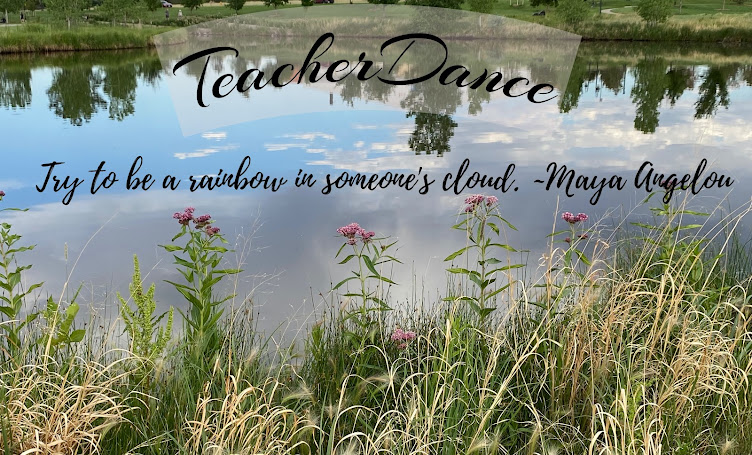Tuesday Slice of Life can be found at the Two Writing Teachers blog
In my reading life, I’ve been trying to read books about which others are whispering NEWBERY, NEWBERY! The most recent book I’ve read is Breadcrumbs, by Anne Ursu and illustrated by Erin McGuire. The book is marketed for middle grade readers, yet I know I would encourage my middle school aged students to read it, too. It speaks with such compassion about the pain that children feel when they are suffering from tragedy in their lives that not only young adults, but parents and teachers should also read this poignant tale. And tale it is, including the heroine, Hazel who saves her knight, Jack, because that is what friends do. The book is over three hundred pages, yet I imagine that reading it aloud to a class would open up such opportunities for immediate personal sharing in either conversations or in writing workshop that it would be worthwhile to spend the time. It is about friendship, bullying, heroism, reversing the stereotype of the prince saving the princess, and being true to oneself. It is about so many things important to growing up.
In my reading life, I’ve been trying to read books about which others are whispering NEWBERY, NEWBERY! The most recent book I’ve read is Breadcrumbs, by Anne Ursu and illustrated by Erin McGuire. The book is marketed for middle grade readers, yet I know I would encourage my middle school aged students to read it, too. It speaks with such compassion about the pain that children feel when they are suffering from tragedy in their lives that not only young adults, but parents and teachers should also read this poignant tale. And tale it is, including the heroine, Hazel who saves her knight, Jack, because that is what friends do. The book is over three hundred pages, yet I imagine that reading it aloud to a class would open up such opportunities for immediate personal sharing in either conversations or in writing workshop that it would be worthwhile to spend the time. It is about friendship, bullying, heroism, reversing the stereotype of the prince saving the princess, and being true to oneself. It is about so many things important to growing up.
On one level, I can see that students will love the sweetness of Breadcrumbs about a friendship and the things one can imagine doing for a friend, even challenging and defeating the Snow Queen. On another level, if a student has been often immersed in fantasy, the subtle references to other favorite tales delight often. Not only are there references to stories of Hans Christian Andersen, but from Philip Pullman and J.K. Rowling, too. From the viewpoint of a teacher, one can read this book to see examples of the incredible strength of childhood/young adult friendship, and the alarming disconnect of these same children with the adults in their lives. I know we teachers make strong connections with our students, and I am proud of those relationships; yet I have also known that many of my students did not tell all.
Read this passage from Ursu: ‘Hazel Anderson’, said Mrs. Jacobs, who was the thing that had deflated, ‘would you sit still?’ / Someone sniggered. From somewhere in the back of the room, someone else sneered, ‘Yeah, Hazel,’ which was not the greatest insult ever, but one thing Hazel had learned at her new school was when it comes to insults it’s the thought that counts./Mrs. Jacobs looked at her with weary eyes, and Hazel froze. She was still like the snow-covered morning. She did not even breathe, at least very much. She was going to listen, she was going to try, because she was not a little kid anymore, because it was her job to sit still and listen to the teacher and we all have to do our jobs in the world, even if we don’t like them very much. There are other times in the book that Hazel tries to do what everyone wants her to do, to say the words they want her to say, and I felt sorrowful that I have probably been that teacher sometimes, and watched as the student dried up, became quiet, and did as he or she was told.
Later in the book, the main story shows Hazel defying the rules and taking back the pieces of her self in order to save her friend. The story of this friendship as told so clearly by Ursu, although couched in fantasy terms, shows fantastical heroism as the metaphor for the real-life saving done by children for their friends.
And my approach to curriculum seems to have changed lately, perhaps because of conversations I’ve been having with teachers I coach about their students. This book, Breadcrumbs touched me so much because it showed the ability of a child to be lost in a class lesson when experiencing personal turmoil. I’ve been thinking more about the student’s personal and emotional support that leads to improved success in the curriculum. To integrate thoughtful lessons that connect to the personal seems critical. There are writing experiences that do come from the heart, and do help us know our students. If we are not gaining the trust needed, if students aren’t personally ready for the lesson (no matter how well prepared is the lesson), plus if students aren’t getting the care they need—rest and food first, then we have a battle like Hazel’s to fight, to forge the good relationships in order that we might teach well. What to do? What to do?





















